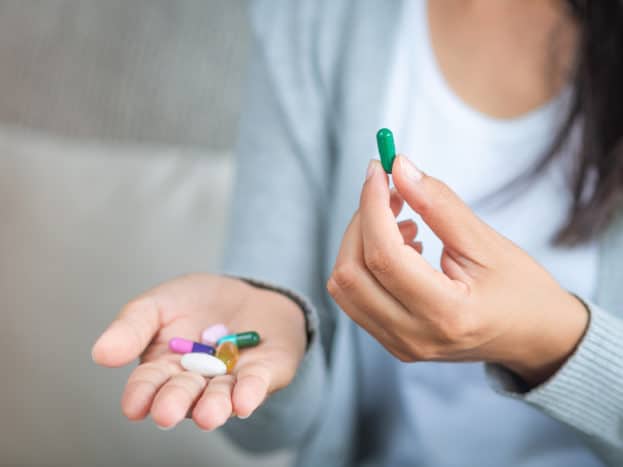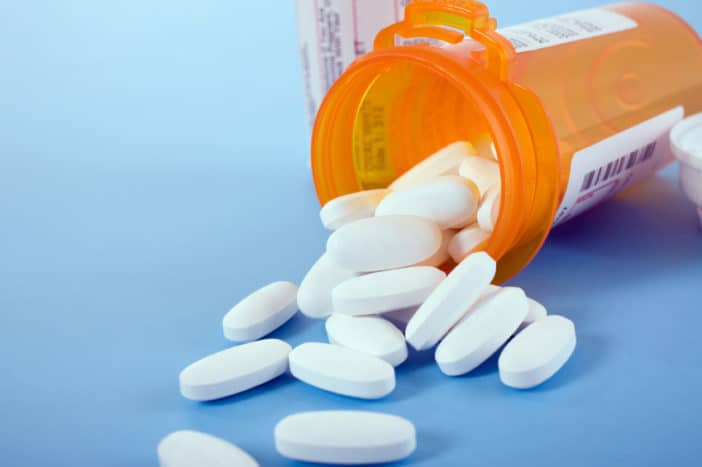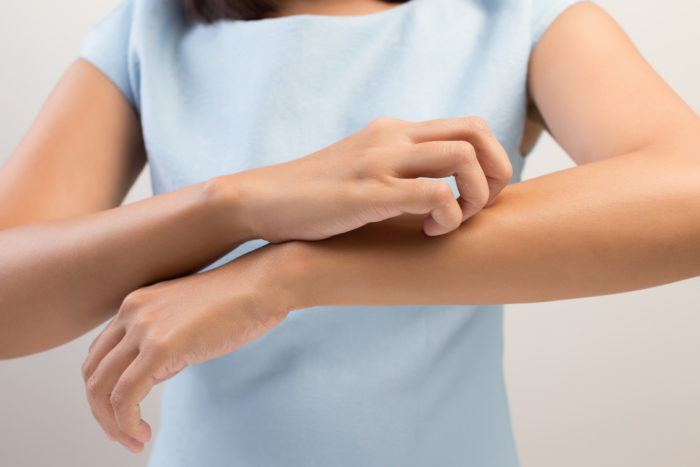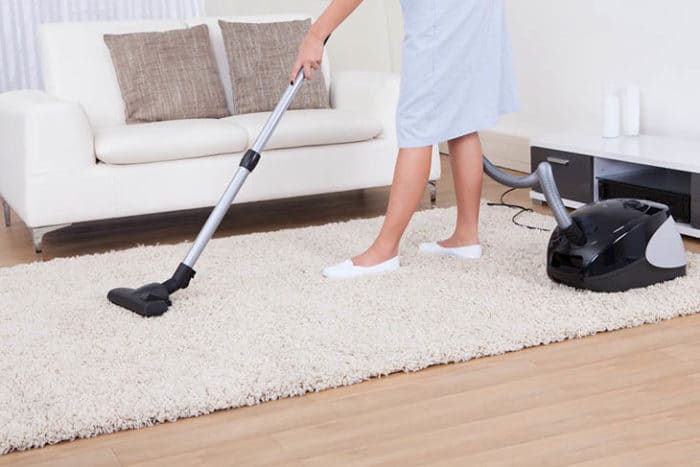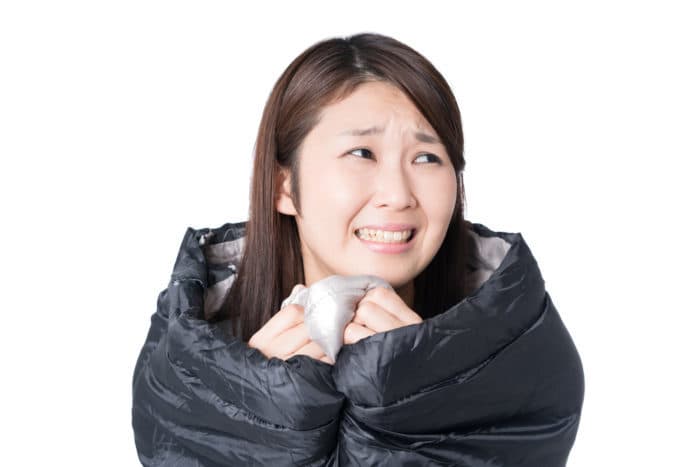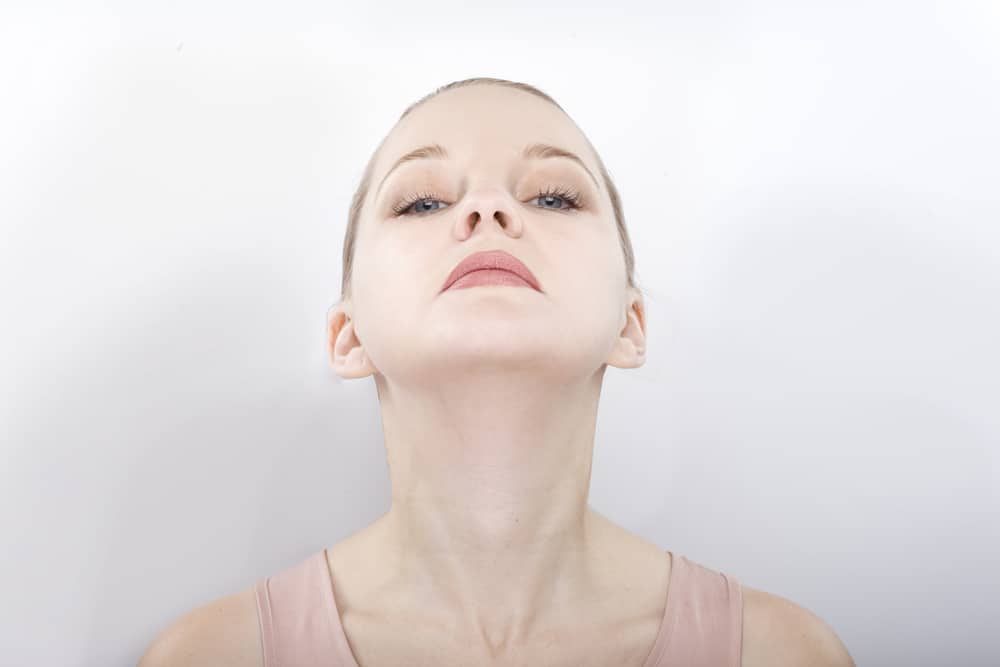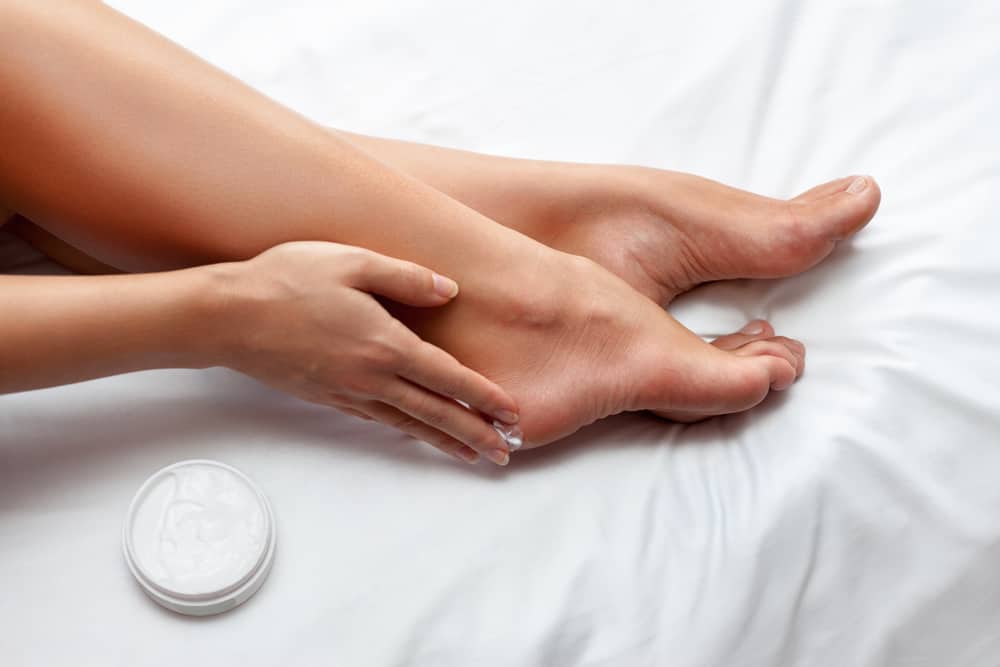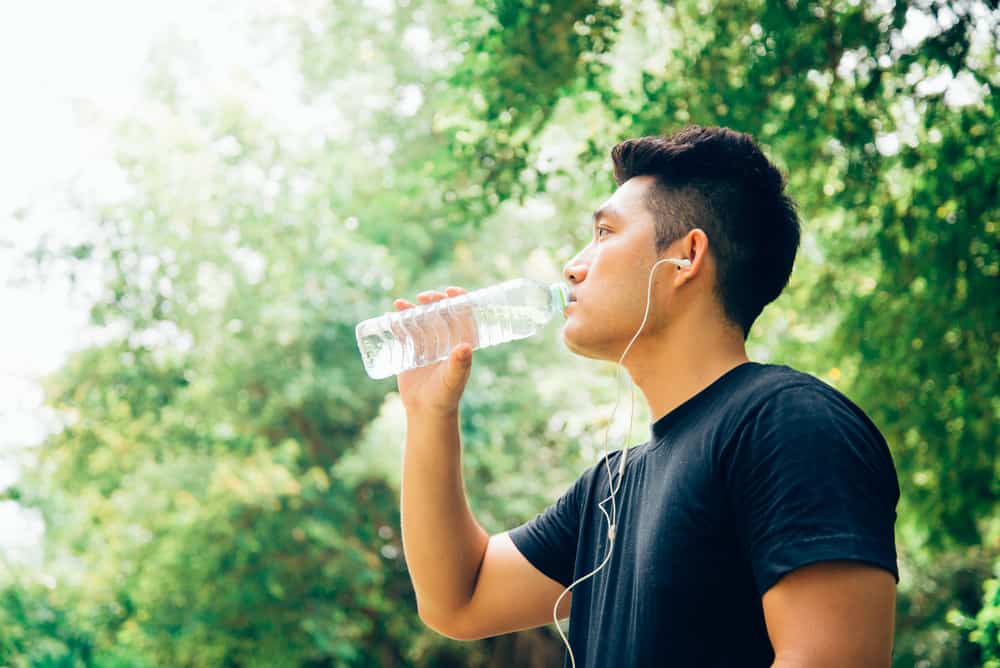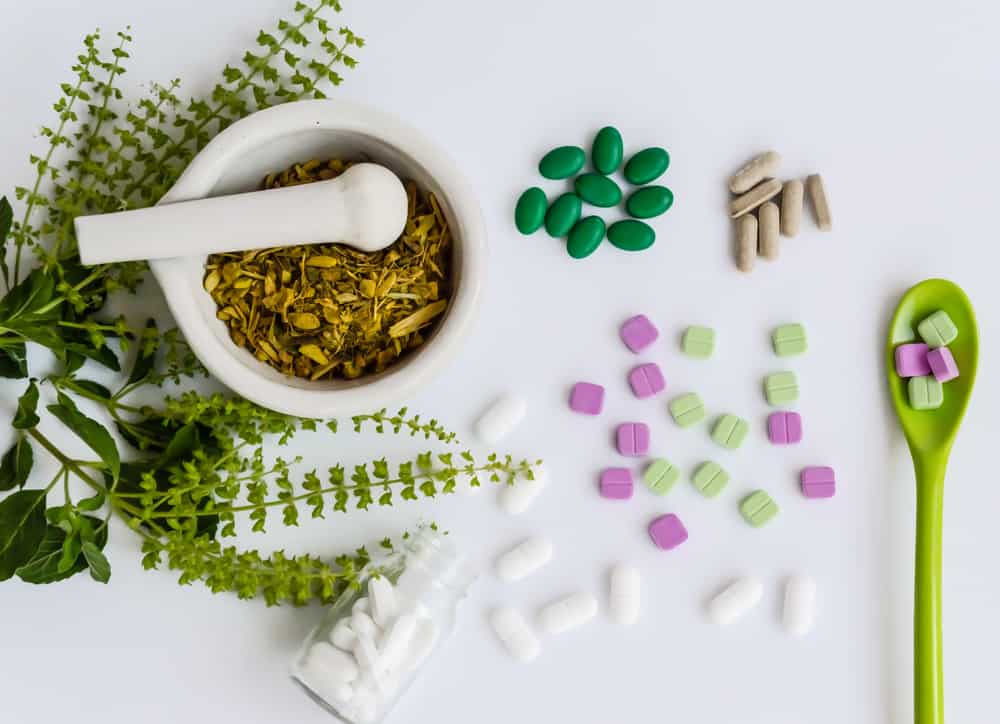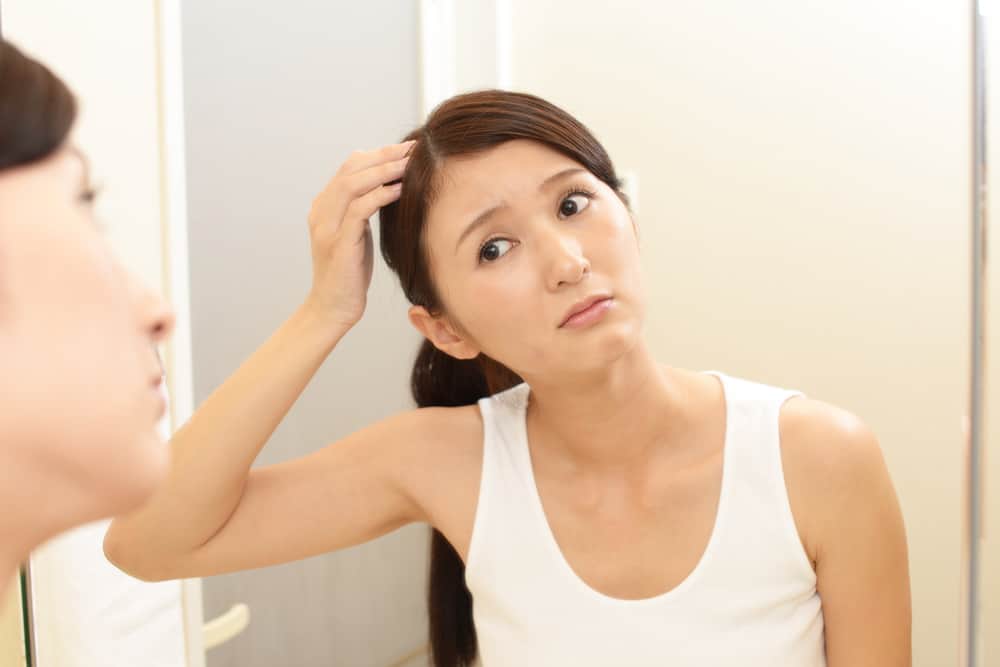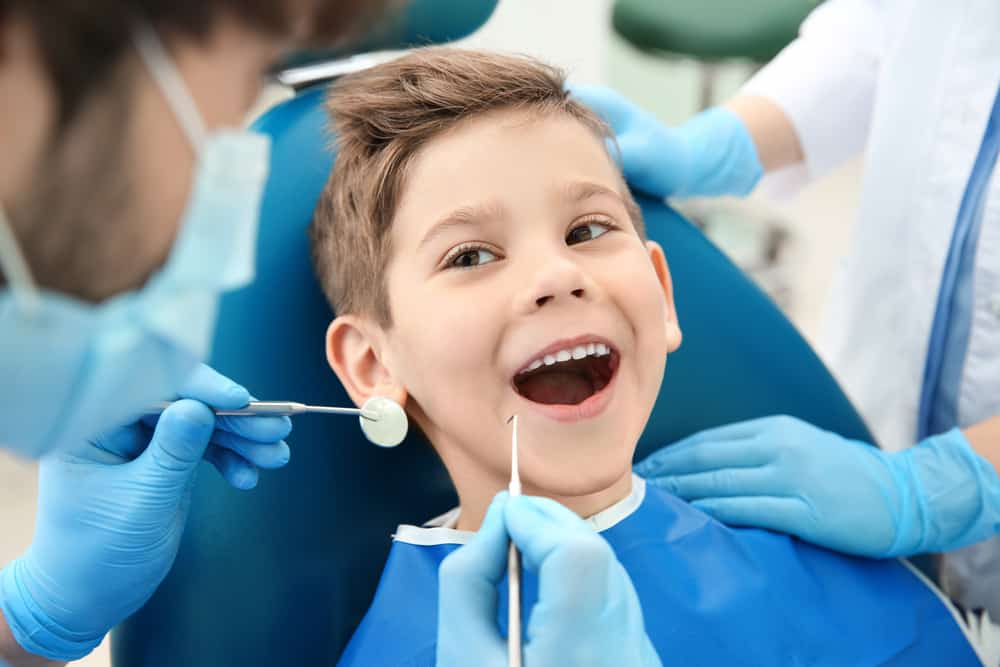Contents:
- Medical Video: Allergy Symptoms & Treatments : How to Treat Cough From Allergies
- What is an antihistamine?
- Generation of antihistamine drugs
- First generation antihistamine drugs
- Second generation antihistamine drugs
- Important things to consider before taking antihistamine drugs
- What types of allergies can symptoms be relieved by antihistamines?
- Food allergy
- Contact allergy
- Dust or mite allergies
- Cold allergy
Medical Video: Allergy Symptoms & Treatments : How to Treat Cough From Allergies
When allergies recur, antihistamines are the first drug recommended for you. This drug can relieve various allergic symptoms such as itching, coughing, sneezing and even shortness of breath. Wait a minute, actually what is an antihistamine? Let's look at the full review below.
What is an antihistamine?
Antihistamines are drugs that function to relieve allergic symptoms such as itching. When you eat or come into contact with allergens that are actually harmless, histamine produced by the body's immune system will overreact.
Histamine also commands the body to fight allergens. This is what causes a reaction or allergic symptoms i.e. the skin, nose and eyes feel itchy.You may also experience runny nose and eyes, nausea and sneezing.
To relieve allergic symptoms, antihistamine drugs function to stop or limit histamine activity in the body. However, allergic itching drugs cannot be used to prevent allergic reactions or treat severe allergic reactions such as anaphylactic.
Generation of antihistamine drugs
There are two generations of antihistamine drugs for allergies. Both have significant differences in dosage and side effects. Here are other differences in antihistamines:
First generation antihistamine drugs
The first generation of oral antihistamines is diphenhydramine and chlorpheniramine. Medications to relieve allergy symptoms have side effects that can make you sleepy after drinking it. The first generation antihistamine for allergies must also be taken repeatedly, and the efficacy of reducing allergies also does not last long.
To overcome the efficacy of antihistamine drugs that are less long-lasting effects, you need to take this first-generation medicine more often, and even need additional doses. Here are some of the first types of antihistamine drugs:
1. Benadryl
Benadryl or diphenhydramine is a first generation antihistamine drug. Benadryl helps relieve colds, sneezing, itchy or runny eyes, and itchy nose or throat. These symptoms may be caused by fever, other upper respiratory tract allergies, or even because of the common cold. Benadryl can also be used to treat and reduce redness due to itching in the body.
This drug works by inhibiting the effects of certain chemicals (in this case, histamine) that cause itching. This product also contains other ingredients (skin protection like allantoin, zinc acetate) which helps eliminate symptoms such as dry, wet, or suppurating skin. Read the packaging for more information.
Depending on the brand and form of the diphenhydramine product you are using, information on the packaging can state that this drug is not recommended for children less than 2, 6, or 12 years unless given by a doctor.
If you use this drug yourself, it is important to read the rules of use on the packaging carefully before starting to use this product to ensure that this medicine is right for you. Benadryl is an antihistamine drug available in topical forms (external drugs) such as creams, gels, and sprays, to treat allergic skin conditions such as itching.
2. Chlor-Trimeton
Chlorpheniramine is the main active ingredient of the Chlor-trimeton antihistamine drug. This drug can help relieve colds, sneezing, itchy or runny eyes, and itchy nose and throat due to fever. This allergy medication also helps relieve other respiratory allergies. Chlor-trimeton is available in preparations of chewable tablets, sweets, capsules, and liquids.
Other types of antihistamine drugs are:
- Clemastine
- Alimemazine
- Chlorphenamine
- Cyproheptadine
- Hydroxyzine
- Ketotifen
- Promethazine
Side effects of first generation antihistamines
Each drug has certain side effects, including antihistamine drugs. The following are some of the common side effects if you are taking first generation antihistamine drugs:
- Sleepy
- The mouth, nose and throat feel dry
- Headache or dizziness
Some uncommon side effects of antihistamine drugs include:
- Nausea
- Gag
- Loss of appetite
- Constipation or difficulty defecating
- The chest feels tight
- Muscle weakness
- Hyperactivity, especially in children
- Nervous
Some serious side effects can include:
- Vision problems, the eyes become blurry
- Difficulty urinating or pain when urinating
- These side effects are more common in older people
Second generation antihistamine drugs
Second-generation oral antihistamines are a type of drug developed to target their action on more specific receptors. This helps reduce side effects, including drowsy side effects. This second generation medicine also works longer in the body, so you don't need a lot of doses.
1. Cetirizine
Cetirizine is a generic name for second generation antihistamine drugs. This drug can fight allergic symptoms without causing drowsiness. Cetirizine is available in the form tablet, syrup, and drops (drop it) Like most other second generation antihistamines, these drugs only need to be taken once a day or according to the dosage recommended by your doctor or pharmacist.
In addition, a small study from San Martino Hospital Italy, published in the journal European Annals of Allergy and Clinical Immunology, reported that cetirizine drug therapy carried out every day for three years can reduce allergy symptoms, use of prescription allergy drugs, and develop allergen sensitivity. new in children who are monosensitized (sensitive to only one allergen). Side effects of cetirizine from long-term use are reported not to affect the behavior or learning process in children who have atopic eczema.
2. Loratadine
This itching drug is similar to cetirizine. Loratadine also both second-generation antihistamine drugs that do not cause drowsiness and are taken enough once a day. Various studies have revealed that cetirizine and loratadine are equally effective in overcoming allergy symptoms, namely hives. However, for a faster antihistamine effect, cetirizine is still superior to loratadine.
3. Fexofenadine
Compared to other second generation antihistamine drugs, fexofenadine is the least side effect. According to various surveys conducted by experts, some people still feel sleepy after drinking cetirizine or loratadine. Meanwhile, fexofenadine at least causes drowsiness. However, according to a 2001 study, cetirizine and loratadine were still faster in stopping histamine.
Important things to consider before taking antihistamine drugs
Avoid taking drugs for this allergy with alcohol. Although second generation antihistamine drugs can cause less drowsiness than first generation antihistamines, they can still make you drowsy. Drinking alcohol when you drink it can increase this drowsiness
Talk to your doctor before using antihypertensive drugs, especially if you have liver or kidney disease. Liver and kidney disease can affect the way the body processes and removes cetirizine, the second type of antihistamine drug.
You should also consult with your doctor before using anitihistamine drugs and suffering from asthma. In rare cases, second generation antihistamine drugs have been shown to cause bronchial spasms. If you suspect you have an overdose of an antihistamine drug, tell your doctor immediately. Later your doctor will decide what steps, if any, to take.
One symptom of this drug overdose can be characterized by daze, diarrhea, dizziness, fatigue, headache, pain, dilated pupils, itching, anxiety, weakness such as getting drugged, drowsiness, fainting, abnormal heart rate, tremor, difficulty breathing, and urine retention.
There are things that must be considered if you take this allergy medicine:
Talk to your doctor if you have an enlarged prostate that can make urination difficult and painful. The prostate and the use of first-generation antihistamine drugs must be monitored and prescribed by the physician.
These drugs can worsen your urination problem. You should also talk to your doctor before using these drugs if you have health problems like this:
- Difficulty breathing because emphysema or chronic bronchitis
- Glaucoma
- Hypertension or high blood pressure
- Heart disease
- Seizures
- Thyroid disorders
If you take other drugs that can make you drowsy, such as tranquilizers or tranquilizers, talk to your doctor before using first generation antihistamines. You should also avoid drinking alcohol with any antihistamine because it can increase the side effects of drowsiness.
What types of allergies can symptoms be relieved by antihistamines?
Allergy is a condition that affects the community quite a lot. Factors involved in increasing allergies include pollution, genetic components and even cleanliness. Allergic reactions can be caused by a number of different allergens but are generally broken down into three categories: food allergies, contact allergies (in contact), and inhaled allergies.
Food allergy
Food allergies are a condition known as food hypersensitivity. This is a type of food intolerance, in which sufferers have an abnormal immune reaction to food.
It is estimated that between 220 and 520 million people worldwide suffer from food allergies, most of which are children. Food allergies are most often caused by cow's milk, nuts, eggs and fruit.
According to a study in North America recently, 16 percent of children under the age of three had a reaction to fruit or fruit juice, while 28 percent had an allergic reaction to other foods. Children with food allergies are more at risk of having (or developing) other allergies such as fever, rhinitis, and asthma.
Symptoms of food allergies can be mild, as is the case with itching (urticaria), which occurs when certain foods such as strawberries are eaten. Most people with allergies experience elevated levels of IgE immunoglobulin in their bloodstream. IgE binds to allergens and then attaches to mast cells on the skin. The cells then release histamine which triggers the appearance of fluids that cause red, itchy, and inflamed skin or commonly called red patches.
More severe symptoms of food allergies may include stomach cramps, vomiting, or diarrhea accompanied by a rash, lip or eye swelling that appears and disappears quickly, or, in very rare casesi, anaphylactic shock: extreme sudden allergic reactions that might result in death. Children with food allergies may show behavioral signs such as crying, irritability, or refusing to drink milk.
Contact allergy
Contact allergies occur when allergens touch someone's skin. The symptoms of this type of allergy are usually limited to the contact area. General irritants include soap, detergent, hair coloring, jewelry, solvents, candles, or polishes. You can also experience allergies when coming into contact with certain plants, especially toxic ones. Even though it's annoying, contact allergies are not so dangerous.
Symptoms may include skin redness, itching, swelling, scaling, or feeling hot. The best way to deal with contact allergies is to identify and avoid irritation. In simple terms, treatments may include the use of creams or ointments to help relieve symptoms. The use of antihistamines is also recommended to prevent allergic reactions, or, in the case of the most serious, anti-inflammatory drugs such as prednisone. With treatment, contact allergies usually disappear within a few days. A person must contact a health care professional if there is fluid from the rash accompanied by pain or fever or if red lines appear from the rash. These conditions are all signs of infection.
Dust or mite allergies
Dust allergy is the most common type of allergy. Sneezing, coughing, and difficulty breathing are some of the symptoms that arise from dust allergy. Inside the dust, often there are also small animals often in damp and warm places, for example on mattresses, carpet fabrics, or curtains. Mites live in moist and warm areas around 20-25 degree Celsius.
However, at extreme temperatures mites can die. The remaining dead carcasses that stick to the skin and cause allergies. Likewise with the reaction of dust mites are also allergens in some people and also people with asthma.
Asthma is a chronic inflammation that causes bronchial swelling and narrowing of the respiratory tract, possibly triggered by fever and if someone has both conditions. An asthma attack can be triggered by a number of other factors, including respiratory infections, certain drugs, types of allergens such as dust or diesel fumes, and even cold air or emotional responses.
Cold allergy
Cold allergy is a reactive skin disorder that occurs in cold temperatures. Skin that has allergies to cold will become red and experience itching. The exact cause of cold allergy is still unknown. Some people get this condition by heredity, get a virus, or have a disease that makes skin cells more sensitive.
In general, cold exposure delivers histamine and other chemicals in the bloodstream which cause redness and itching reactions.Cold allergy can be diagnosed by attaching ice to the skin for several minutes. If you have a skin allergy, itching will appear after a few minutes the ice cube is removed. Many cold allergies occur without obvious causes.


